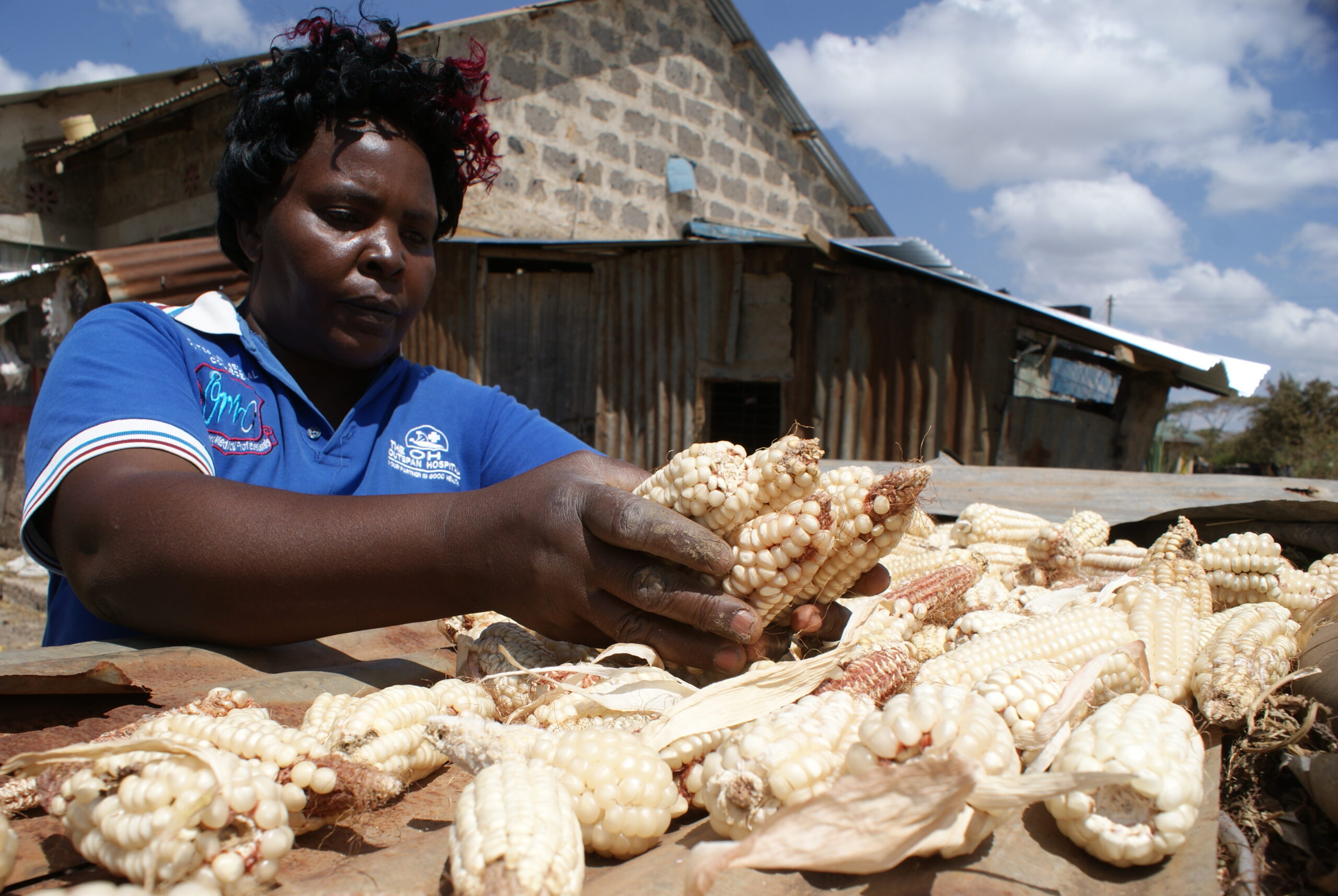By David Njagi
Nairobi, Kenya: Margaret Karaya does not overlook the harm inflicted by Kenya’s colonial past, but she acknowledges certain positive influences from the Global North, particularly in environmental stewardship.
Karaya is deeply passionate about conservation, often voicing her concerns about the growing pollution that threatens Kenya’s biodiversity and food systems.
“I greatly respect developed countries for their organized approach to environmental protection. Everyone there takes responsibility for proper waste disposal. Here in Kenya, however, no one seems to care,” she says.
Improper waste management has dire environmental consequences. Blocked sewers often lead to untreated waste contaminating freshwater sources, while non-biodegradable plastics deplete soil fertility. Additionally, livestock frequently perish after ingesting plastic waste.
In Karaya’s village, environmental pollution has disrupted social harmony, over waste dumped on farmland. In regions where pollution has degraded soils, farmers are forced to encroach forests to grow food crops there or harvest resources for trade. In areas where degraded soils can no longer sustain agriculture, farmers resort to encroaching on forests to grow food crops or harvest resources for trade.

The problem of disposable nappies
Highway littering and the careless disposal of used baby nappies are particular concerns for Karaya, who is a member of the Ngaatho Community Foundation. For instance, travelers habitually discard plastic waste from vehicle windows.
At the household level, many mothers have abandoned the traditional practice of reusing cloth nappies, opting instead for disposable alternatives. These disposable nappies not only pollute agricultural land and water sources but also clog pit latrines, increasing the risk of disease outbreaks during floods.
“I’ve taken it upon myself to educate young mothers about the benefits of using recyclable cloth nappies alongside disposables to mitigate the mounting environmental burden. This should be everyone’s responsibility across Kenya,” Karaya asserts.
Karaya sees women’s involvement in waste recycling as an exemplary approach to integrating gender perspectives into ecological governance and addressing contemporary conservation challenges.
Cultural and policy shifts are needed
However, achieving this goal requires significant effort. Karaya believes the country’s pollution crisis has been exacerbated by shifting societal values, which increasingly prioritize capitalism and self-interest over communal and environmental well-being.
Policy shortcomings have also played a role. Corruption and the pursuit of quick profits have sidelined measures that could safeguard Kenya’s environmental integrity, pushing the nation toward ecological collapse.
The introduction of disposable nappies has been particularly contentious. Many argue that public input was ignored during their adoption, despite the products posing similar environmental risks to other banned plastics.
Studies show that manufacturing nappies demand significant water and wood pulp, contributing to deforestation and resource depletion. The process also relies on petroleum-based materials and emits greenhouse gases, exacerbating air pollution. Moreover, harmful chemicals such as dioxins and phthalates can leach into soil and water, endangering ecosystems.
A call for homegrown solutions
While advocating for eco-friendly alternatives, Karaya emphasizes the importance of passing cultural values that promote environmental stewardship to younger generations. She believes building partnerships between communities and organizations like the African Biodiversity Network is essential.
She also urges the government to revise environmental policies to encourage public participation and recommends incorporating environmental education into school curriculums.
“We want a society that respects itself and its environment. We must reflect on where we went wrong and return to our roots. For me, it begins with respecting oneself and one’s neighbour,” says Karaya.
Ngaatho Community Foundation, a partner of the African Biodiversity Network in Kenya, collaborates on environmental health initiatives and works to strengthen community resilience against both known and emerging risks.














